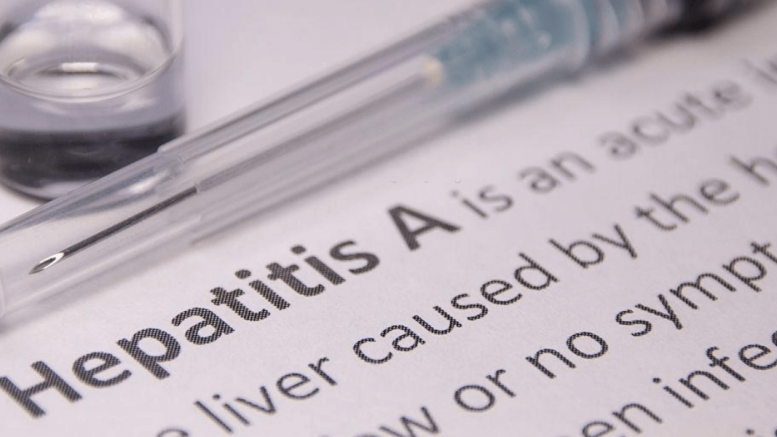Often known as Hep A, Hepatitis A is a spreading liver disease prompted by the hepatitis A virus. Few patients suffer only from a moderate sickness that continues for a few weeks. While some patients have more critical health issues that can last months. You normally get the condition when you consume or drink something infected by poop from an affected person.
The hepatitis A virus normally isn’t fatal. Almost all affected patients tend to recover. But in the meantime. you have to obey doctor’s instructions and take prescribed medicines properly to get fully restored from the condition. Maintaining regular hygiene, cleaning hands frequently, are the safe ways to stay protected from hepatitis A. Hepatitis A vaccine series is available for patients who are at severe risk.
In severe cases, the virus can cause inflammation in your liver. Younger patients hardly show any symptom. However, others might have an upset stomach, vomiting, abdomen pain, fatigue, itching, loss of appetite, diarrhea, jaundice (yellow eyes and skin), pale-coloured poop, joint pain, dark urine and fever.
These health conditions tend to end after about 2 months but they can keep reappearing. Hepatitis A virus can be transmitted from you even if you feel well or don’t see any symptoms. Hepatitis A signs and symptoms usually don’t emerge after 1week of getting the infection.
Hepatitis A is prompted by a virus that affects liver cells and creates swelling. The pain can sway the liver functionality and provoke other symptoms and signs of the same disease. Some particular ways of contaminations are consuming meals prepared by someone who is affected with hepatitis A and he/she didn’t wash hands properly after using the restroom, drinking polluted water, having raw shellfish dishes from water befouled with residue, coming in close contact with a patient who is infected or having intercourse with an infected person etc.
Read Also: Transmission, dose, exposure and vaccine in hepatitis A
Table of Contents
Hep A Prevention
The infection of hepatitis A can be prevented by Hep A immunisation vaccine. The vaccine is usually provided in two shots. The first one is accompanied by a booster shot. Hepatitis A vaccine series is recommended for all kids at age 1, or older ones who didn’t get the initial vaccine, homelessness kids, infants who are travelling internationally, kid adopters from nations where hepatitis A is prevalent, people who are in close contact with the affected patient, laboratory workers, gay men, illicit drug users, patients with clotting-factor ailments, chronic liver disease patients (also hepatitis B or hepatitis C), any common person who is seeking immunity vaccine etc.
For the hep a vaccine for adults, there is single-antigen inactivated hepatitis a vaccine available. A compound inactivated vaccine is TWINRIX. This vaccine has both hepatitis A (HAVRIX) and hepatitis B (Engerix-B) antidotes. They are also a vaccine available for Combination HAV and typhoid and certified antidotes are Hepatyrix and Vivaxim.
Other Hep A immunisation vaccines are BioVac-A and MEDVAC-A. These vaccines are for live attenuated hepatitis A vaccine. The vaccine doses are tolerable and extremely immunogenic, good for HBV immunization. The principal means for protection against hepatitis A before the vulnerability is vaccination, which is excellent to resistant globulin with reverence to attainable antibody congregations and persistence of immune response.
For people who are at risk for hepatitis A illness or who are allergic to the hepatitis A vaccine or are less than 1 year of age, passive immunization is also available.
There is no evidence for the serologic examination of kids prior to immunisation. The choice to proceed with the pre-vaccination serologic trial of grown-ups should be done on the basis of predicted ubiquity of resistance, whether examination will conflict with the preliminaries of vaccination, and the cost of shots associated with the cost of testing.
People for whom pre-immunization of hep a serology test is the most economical. Such a test entails areas with great or moderate HAV endemicity, adolescents, grown-ups in specific community groups and people in groups with a huge predominance of disease. Prevaccination serologic examination of grown-ups more than 40 may be cheap; according to a comprehensive population-based review. Serology after vaccination is not needed in immunocompetent bodies. In overall, the fulfilment of the immunisation may be considered to present life-long protection.
How To Take Proper Safety Precautions To Avoid The Infection Chances
If you’re migrating to parts of the world where the disease of hepatitis A is quite relevant, you must follow some preventive measures such as peeling and cleaning all raw fruits and vegetables, stop consuming raw or undercooked food, only drink water from a sealed bottle and use the same water during brushing your teeth, avoid eating beverages and meals from a dirty store, boil the tap water before drinking etc.
You can also seek some Hep A vaccine recommendations from your doctor before travelling to foreign countries. The vaccine is your best protection. If you come into contact with someone who has hepatitis A, you can get the vaccine or an IG shot within 2 weeks for some protection. Strict cleanliness is also necessary.
Regularly clean your hands with cleanser and water after using the toilet, before and after touching meals, and after altering a diaper. Also, avoid all sexual activity if your partner has the infection.
Final Thoughts
If you are a patient of Hepatitis A, you may not see the symptoms before the one week of catching the infection. Once you start feeling the uneasiness and see some of the symptoms, it is better to see a doctor at the earliest. If you are diagnosed with Hepatitis A, make sure you follow the proper, medical instruction given by the doctor.
Take proper medications, go for sufficient tests, and in order to ensure safety for you dear ones, avoid sexual intercourse with your partner, don’t share your eaten food, keep your essential items separated and use your intimate care items individually. This is how you can stop the virus from spreading. There is a very high chance of getting faster recovery and the disease is not life-risking, so don’t panic!

 Login/Register
Login/Register







.png)
.png)
.png)
.png)
Be the first to comment on "A Fight Against Hepatitis A: Know The Facts, Prevention And Vaccines Series"